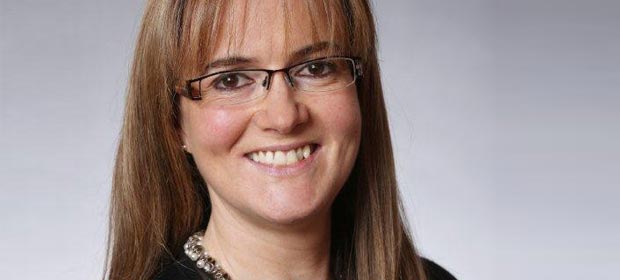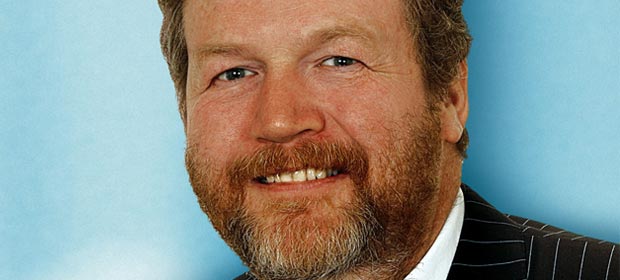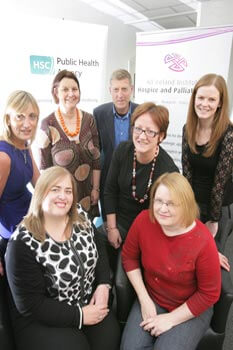- HSE Director of Clinical Strategy & Programmes
- National children’s hospital to be completed by 2018
- HSE scoops two advertising effectiveness awards
- Over 2,600 patients on dialysis in Ireland
- New pharmaceutical deal
- Cut in replacement staff
- Data quality guidelines
- Doctoral Fellowship in Hospice and Palliative Care
- Assessment of national Deep Brain Stimulation Service in Ireland
HSE Director of Clinical Strategy & Programmes
Dr. Áine Carroll has been appointed as the new HSE National Director of Clinical Strategy and Programmes.
She succeeds Dr. Barry White, who, on the completion of his contract, has returned to clinical practice as consultant haematologist at St James’s Hospital, Dublin.

Originally from Northern Ireland, Dr. Carroll is a consultant in Rehabilitation Medicine and the immediate past Chair of the Medical Board of the National Rehabilitation Hospital in Dun Laoghaire.
She is Clinical Lead of the Rehabilitation Medicine Programme and senior clinical lecturer at University College, Dublin. Her new role as National Director will be to improve and standardise patient care throughout the HSE.
Welcoming her appointment, Mr. Tony O’Brien, HSE Director General Designate said that Dr. Carroll had demonstrated her capabilities while working as National Lead for Rehabilitation Medicine and now had the opportunity to implement the objectives of the clinical programmes in a similar fashion.
National children’s hospital to be completed by 2018
If planning permission is provided for the St. James’s site in Dublin, building work on Ireland’s first national tertiary children’s hospital is expected to be completed by 2018.
The Cabinet decided that the new children’s hospital, which will be a seven storey building, will be built on a 16 acre site at the Rialto end of St. James’s. It is expected that the nearby Coombe Women’s Hospital will eventually be relocated to the St. James’s site.

The Minister has declined to say how much the new hospital will cost, citing commercial sensitivity on the grounds that the project had to go out to tender.
St. James’s has stated it could build the hospital for €478 million but the Minister said this would be tight. The Minister said a total of over €400 million would be available from the exchequer and that €13 million of the money scheduled for the Mater development would be reused on the new site. The Government has stated that it plans to get €200 million from the sale of the National Lottery or a new licensing
The decision to locate the hospital on the St. James’s site was criticised by a number of hospitals which had proposed alternative centres to the Dolphin Review Group.
Temple Street Children’s University Hospital said the St. James’s site did not facilitate true tri-location. Tallaght Hospital Action Group said it was deeply disappointed at the decision. The Mater and Rotunda Hospitals also expressed extreme disappointment. The Mater Chairman, Mr. John Morgan said they could have completed the hospital by 2016 and the Minister admitted that approximately €26 million of the €39 million spent on the Mater site could not be recouped.
There is considerable concern that pending the opening of the new hospital, investment and funding in the three existing hospitals in the capital should be maintained over the next five years to ensure that there should be no run down in their services.
This month’s Cabinet decision on the location of the new hospital is the culmination of many years of proposals, reports, recommendations, planning permission, wrangling over the optimal site and whether the hospital should be co-located with a maternity hospital or tri-located with a maternity and adult hospital.
It is almost seven years since consultants McKinsey, recommended a single world-class tertiary paediatric centre amalgamating three existing children’s hospitals should be located in Dublin, adjacent to an adult hospital.
Over 40 possible sites for the new hospital were put forward earlier this year to the Dolphin Group. The Dolphin report found that St. James’s had the best range of medical specialties to partner a new children’s hospital. It had concern about the size of the Mater site, and about the timeframe of the required McKinsey specialities being provided on the site at the Connolly campus, although this had been disputed by some Clinical Directors at the nearby Beaumont Hospital, who stated that the Connolly site had been put forward as part of a single organisation proposal by the Academic Centre consisting of Connolly and Beaumont hospitals and the RCSI.
The Dolphin Group described co-location with an adult hospital as essential and tri-location with adult and maternity hospital as an optimal. It concluded there was no single perfect solution.
The Minister said there was a moderate risk that the St. James’s site could fail to get planning permission. An Bord Pleanála already refused planning permission for the Mater site on grounds of its height and size and the Minister said that while the Mater was an excellent location from a clinical point of view, the planning risk was unacceptably high. The Government has now told St. James’s to provide more land than initially proposed for the children’s hospital, so that instead of the nine storeys proposed, the height will not exceed seven storeys. An Bord Pleanála has already approved plans for a private hospital at St. James’s, but only on the proviso that there would be a significant reduction in height from the eight storeys proposed.
Dr. Reilly said that a 20 acre site on the nearby South Circular road close to the Coombe hospital might be used as the site of a new innovative centre for medical research and a medical quarter.
The Dolphin Group proposed that the Minister should establish a board to run the new hospital and to start integration of existing children’s hospital services.
HSE scoops two advertising effectiveness awards
The HSE’s QUIT smoking campaign won two awards at the Institute of Advertising Practitioners in Ireland Advertising Effectiveness 2012 Awards.
QUIT won a Gold AdFx award in the Public Service, Social Welfare and Education Category, and also won a special Judge’s award for Best Use of Research.

The AdFx awards are presented every two years to advertising campaigns that demonstrate the strongest results and most effective behaviour change strategies. The QUIT campaign launched in 2011, aims to encourage smokers to quit by highlighting the impact of tobacco related disease on smokers and their loved ones.
The award was accepted by Dr Fenton Howell, Director of Public Health and Ms. Fidelma Browne, Head of Public Communications on behalf of the HSE, and by advertising agencies Cawley Nea TBWA and Mediavest who developed the campaign with the HSE.
In its first year, the QUIT campaign saw an 82 per cent increase in visits to the HSE’s online quit smoking support site, www.quit.ie, and more than 100 per cent increase in people signing up for an online QUITplan support. Calls to the QUITline increased by over 27 per cent and the campaign’s new Facebook support service now has over 35,000 members.
In a recent survey carried out by Millward Brown Lansdowne, 86 per cent of smokers said the campaign encouraged them to think about quitting, and 82 per cent of non-smokers said it encouraged them to support a loved one to quit.
Dr. Howell said “Our warmest appreciation is reserved for the people whose personal stories are the heart of this campaign. Three people who experienced the harsh reality of tobacco related disease, through illness or bereavement, gave us permission to share their experiences for the campaign materials. Without the candid and courageous contributions of Pauline Bell, Gerry Collins and Margaret O’Brien, this project would not have been the success that it is. Thanks to them, and the many other real smokers who took part in our campaign, we can continue to tackle smoking and reduce the level of illness and death caused by tobacco use in Ireland.”
Over 2,600 patients on dialysis in Ireland

At present, 2,603 people are on dialysis in Ireland, North and South, and it is projected this will increase by five per cent over the next five years in line with Western and European forecasts, according to Professor Peter Conlon, Consultant Nephrologist/Renal Transplant Physician at Beaumont Hospital, Dublin.
He said approximately 87 per cent (or 1,795) of all patients in Ireland dialyse in hospital three times per week, with the remainder or 227 patients being treated on Home Therapies, representing only 13 per cent of the dialysis population. Home dialysis offers many lifestyle benefits, such as being able to manage patients’ own care and fit their treatment around their life, which might not be possible for people who chose to have their dialysis in a hospital, There was also an option to perform home dialysis while patients slept.
Prof. Conlon said diabetes, which affects 191,000 people in Ireland is a common cause of kidney disease and is responsible for almost half of the new cases of kidney disease each year. He was speaking at Baxter’s 2nd All-Ireland Symposium on Home Therapies in Dublin.
New pharmaceutical deal
A new deal, which he said would reduce the cost of pharmaceutical drugs in the State by over €400 million over the next three years, was agreed by the Irish Pharmaceutical Healthcare Association (IPHA), the HSE and the Department of Health.

Health Minister, Dr. James Reilly, T.D., said it would mean significant reductions for patients in the cost of drugs, a lowering of the drugs bill to the State, greater access to new cutting-edge drugs for certain conditions, and an easing of financial pressure on the health services into the future and an important step in reducing the cost base of the health system.
The Department of Health said the deal was beneficial in two broad ways – about half the financial value was related to reductions in the cost of patent and off-patent drugs and the other half was related to the State securing the provision of new and innovative drugs for the duration of the agreement in an exceptionally difficult economic climate.
The Department said the new deal, combined with the IPHA agreement reached earlier this year, meant that €16 million in drug savings would be made this year with much greater savings to be achieved in 2013/14/15. It estimated that the deal would generate savings of up to €116m gross in 2013.
Under the deal, the price of medicines marketed by IPHA companies which are off-patent prior to November 1, 2012, will be reduced to 50 per cent of their original price by November 1, 2013 and the price of up to 400 patent protected products, which have been available on the HSE Community Drug Schemes prior to 2006, will be subject to a price review. Price reductions averaging up to 16 per cent are expected from this review process.
Alex White, Minister of State with responsibility for Primary Care welcomed the deal. He said: “The current cost of drugs in our health system at over €2bn per year represents a major challenge to the State. However the value of life-saving life-enhancing drugs to patients is incalculable. This importance of this new deal to the State and to patients alike will be felt well into the future”.
This deal comes as legislation aimed at reducing the cost of generic drugs makes its way through the Oireachtas. The Health (Pricing and Supply of Medical Goods) Bill 2012, which will introduce a system of reference pricing and generic substitution, is a priority for the Government. The Minister expects that this Bill will be enacted before the end of the year and that it will deliver further savings in the costs of medicines for the health service and private patients.

Cut in replacement staff
Absenteeism cost the health services €11.4 million last year. Mr. Tony O’Brien, HSE Director General Designate said that from next year they would only fund replacement staff at “an acceptable level” of absenteeism.
The target for absenteeism this year was 3.5 per cent and discussions are underway on next year’s target.
Data quality guidelines
HIQA has published new guide for front-line health and social care staff as a first step in raising awareness about the importance of data quality as part of the process of providing safe and effective services.

The guide “What you should know about Data Quality,” includes a broad overview of data quality issues around personal health information in the Irish health and social care setting and is aimed at helping front-line staff ensure that the information they collect on patients is of the highest quality possible.
Professor Jane Grimson, Director of Health Information and Deputy Chief Executive of HIQA, said: “Safe, reliable health and social care depends on access to and use of quality data. Accurate and up-to-date data is critical for providing high quality clinical and social care and also for research, health service planning and the management of health and social care services.”
“Poor data quality has a substantial impact on the safety of service users. Therefore, data quality is the responsibility of all health and social care staff – not just the clinical staff, data quality manager, records management or the IT department. Various people, with the appropriate confidentiality safeguards, will use health or social care data and it is vital that data users have confidence in the quality of the data they use. This guide explains in clear language how to go about achieving that, and how to assess an organisation’s data quality.”
The guide has been published on the Authority’s website, www.hiqa.ie and is being distributed to 10,000 health and social care staff around the country.
Professor Grimson concluded: “The collection of information should not impose an additional burden on the health and social care system; it should be collected as a routine part of the job. Data quality is the responsibility of all staff and achieving data quality takes time and commitment at all levels of an organisation. Management should show a commitment to the data quality concept and drive data quality initiatives, especially as the personal and financial implications of poor quality data can directly affect patient care. Improving data quality will drive safer better care for all people using our health and social care services.”
Doctoral Fellowship in Hospice and Palliative Care

The All Ireland Institute of Hospice and Palliative Care (AIIHPC) in conjunction with the Health & Social Care Research & Development Division of the Public Health Agency has announced that Helen Sinclair, a Teaching Fellow at the School of Nursing and Midwifery, Queen’s University Belfast, has been awarded a Doctoral Fellowship in Hospice and Palliative Care. The Fellowship will enable her to undertake research training as a means of developing a research career in Palliative Care and to follow a training programme leading to a PhD.
Her research will focus on the transition of young people with life-limiting conditions to adult services in Dublin and Belfast. Improvements in care and treatment have led to more people with life-limiting conditions living beyond childhood. As a result, they must make the transition from children’s to adult services, a prospect which can be daunting for these young people and their families. Currently, there is little evidence on transition services and Helen’s research aims to identify the organisational factors that promote or inhibit successful transition from children’s to adult services.
Earlier this year, Cathy Payne was also awarded a fellowship and is currently undertaking research on the development and testing of a cancer cachexia rehabilitation intervention to reduce symptom burden and improve quality of life in individuals with non small cell lung cancer (NSCLC). The fellowship has provided Cathy with many opportunities to expand her research knowledge and expertise. She also attended the European Association of Palliative Care’s seventh World Research Congress that took place in Trondheim, Norway, in June and presented her research at the pre-Congress seminar.
Assessment of national Deep Brain Stimulation Service in Ireland
HIQA has published the results of a health technology assessment (HTA) of a national deep brain stimulation (DBS) programme for adults with movement disorders.

Dr Mairin Ryan, Director of Health Technology Assessment in HIQA, said “since 1997 over 130 Irish patients had received DBS treatment abroad, funded through the E112 Treatment Abroad Scheme. This HTA shows that, for equal numbers of patients treated, the current system where patients are routinely referred to the UK for treatment costs less than a proposed service provided nationally. However, an adequately resourced Irish service would have benefits, both for the overall numbers of patients who can avail of the treatment, as well as for individual patients receiving long-term DBS care”.
DBS is a surgical approach to treating the symptoms of advanced Parkinson’s disease, dystonia and essential tremor that cannot be adequately controlled using medication alone. As there is currently no DBS programme within the Irish healthcare system, patients are routinely referred to centres in the UK for treatment, with funding provided under the E112 Treatment Abroad Scheme (TAS).
HIQA says that at present, patients who are able to travel have timely access to high-quality care in established UK DBS centres. The benefits of a national DBS service would include improving access to care for eligible patients who are unable to travel overseas. It would also reduce the significant financial and logistical burden on patients who do travel to access care and would facilitate greater integration of services, since all stages of the assessment, surgery and follow-up care could be carried out in Ireland. Access to emergency care in cases of adverse effects or complications would also be improved, as the need to obtain TAS approval and arrange overseas travel at short notice would be removed.
“These benefits could only be realised if an Irish programme was established in accordance with international standards for high quality DBS services, with the resources, expertise and support services needed to meet the anticipated level of demand,” Dr Ryan said.
The Authority’s assessment found that the cost of a national DBS programme in Ireland would exceed the cost of continuing to fund DBS through the Treatment Abroad Scheme by approximately €21,000 per patient over ten years. Over five years, the total cost of a national DBS programme is estimated at €1.84 million more than the €4.29 million required to treat the same number of patients through the TAS. This cost difference would, however, be significantly impacted by any changes to health insurance arrangements.
“A new national DBS programme would place extra demands on existing resources (e.g. operating theatre time, neurosurgical bed days, consultant appointments), requiring appropriate service planning prior to its introduction to ensure that existing neurological services are not affected or that patient access to DBS surgery is not curtailed by the establishment of a national DBS centre. This is particularly relevant given the significant capacity constraints that have already been identified in Irish neurosurgical services,” Dr Ryan said.
The Board of the Authority has approved the HTA report and it has been submitted to the HSE for consideration. For a full copy of the report go to www.hiqa.ie. It can also be found on Facebook and Twitter by searching ‘HIQA’.

